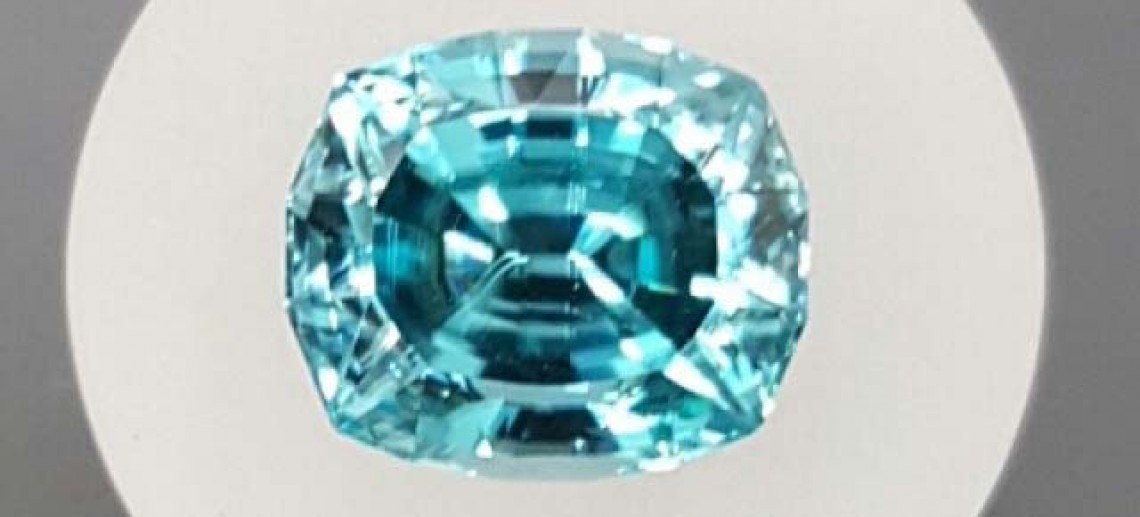
Published at 9th May 2018
Modified at 2nd Aug 2023
What is Cubic Zirconia?

Cubic Zirconia (CZ) was introduced in the commercial market in the 1970s. For those of you who are old enough to remember its early days, CZ was widely regarded as a fake diamond and spawned scores of jokes at the expense of the frugal, the fiscally responsible, or flat out broke buyers.
Material Make-Up
Cubic Zirconia is the crystalline form of zirconium dioxide. This doesn’t mean much to the average consumer so let’s just say that CZ is not as hard as a diamond with a rating of 8.5 on Mohs Scale of Hardness (a diamond scores a 10). It is heavier than a diamond with the same carat rating.

Cubic Zirconia or Zircon
There is a natural gemstone called Zircon that is often confused with Cubic Zirconia. Unfortunately these two gems share a similar name. Zircon is a beautiful natural occurring gemstone that is most commonly found as a blue gemstone. These two gemstone should not be confused.

Cost vs Practicality vs Usage
Cubic Zirconia costs far less than diamond. Some sources claim a CZ gem should cost around 10% of its equivalent carat weight diamond. However, discussions about prices continue and while some may claim that this is the cost of craftsmanship, others claim that CZ costs far less than 10% of the diamond’s value.
Normally, used as a diamond replacement in engagement or wedding rings, Cubic Zirconia tends to lose its lustrous appearance over time and is easier to scratch than a diamond. Those who cannot afford the hefty costs for fine diamonds often choose CZ as an acceptable substitute. Diamond fanatics tend to state that there is no price on love and that diamonds are the way to go, but if there is no price on love, then what’s the difference which you choose?
Long Run
In short, Cubic Zircona is a durable gemstone and a reasonable short term substitute for diamonds or higher cost gemstones. For the long term, Cubic Zirconia may not be the best solutions since it is most likely to sustain damage (scratches), it will eventually lose its sparkle, and it will become quite clear that the gem you purchased is not a diamond but a diamond substitute. So as a long term solution, try to budget money to purchase an ageless diamond. By the time the CZ starts to really show its imperfections (compared to a diamond) and its true identity becomes revealed, you should have sufficient funds for that beautiful diamond.
Search the Gemstone Encyclopedia
Related Auctions
Related Articles
Jade is a beautiful stone that can be many different colors including green, orange, or white. Learn how to test Jade to see if it's real.
9th May 2018
Amethyst stone is a quartz mineral in various shades of striking purple. Learn about the gem's history, properties, value, and uses in this informative guide!
5th May 2021
The carnelian stone is a chalcedony mineral famous for its fiery orange colors. Learn all about carnelian meaning, history, and properties in this helpful guide!
26th Feb 2021
Latest Articles
Shortite is a rare mineral and rarer gemstone, usually found as colorless or yellow wedge-shaped crystals. Learn the value, history, and properties of shortite in this guide!
9th Dec 2024
Senarmontite is an uncommon antimony mineral mostly used industrially but occasionally collected as rare gems or pearly crystals. Find out all of the traits, uses, prices, and history of senarmontite.
27th Nov 2024
Tantalite is a group of red, brown, or black minerals containing the rare and valuable element tantalum. Discover the uses, history, prices, and properties of tantalite gemstones in this guide!
11th Nov 2024
Article Categories
How To's is where you will find helpful articles from gem Rock Auctions on how to cut gemstones, select gemstones and buy gemstones.
9 Articles




